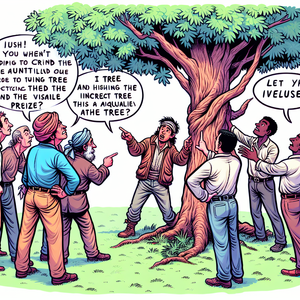The Future of Fashion Freelancing: Sustainability and Innovation

One of the most impactful ways freelance fashion designers are contributing to sustainability is through the use of innovative materials. A growing number of freelancers are turning to organic, recycled, and biodegradable fabrics, significantly reducing their reliance on synthetic fibers that contribute to pollution and waste. Designers like Stella McCartney have set the standard by popularizing materials such as Econyl, a regenerated nylon made from ocean waste. Others are exploring alternatives like Tencel, produced from sustainably sourced wood pulp, which not only minimizes environmental impact but also offers a luxurious feel. Moreover, upcycling has emerged as a significant trend among freelancers. This practice involves transforming old garments into new creations, thus minimizing waste while allowing designers to showcase their creativity. For instance, New Zealand-based designer Karen Walker has garnered attention for her upcycled collections that merge modern aesthetics with sustainability, demonstrating that fashion can indeed be both stylish and environmentally conscious.
Zero-Waste Design Concepts
Another innovative approach gaining traction among freelance fashion designers is the zero-waste design philosophy. This method focuses on creating garments in a way that produces no textile waste during the cutting process. Designers like Holly McQuillan and Reiko Sudo exemplify this approach, utilizing pattern-making techniques that maximize fabric usage and minimize offcuts. By prioritizing zero-waste designs, these freelancers are not only reducing the environmental footprint of their collections but also challenging the traditional fashion paradigm that often prioritizes profit over sustainability. This philosophy encourages a more mindful approach to garment construction, where every scrap of fabric is considered valuable. It fosters creativity and resourcefulness, pushing designers to rethink how they approach design and production. The zero-waste approach also resonates with consumers who are increasingly looking for brands that prioritize sustainability in their practices.
The Role of Technology in Sustainable Fashion
Technology is playing a pivotal role in advancing sustainability within the freelance fashion sector. Digital tools and software are enabling designers to create virtual samples, drastically reducing the need for physical prototypes that often end up discarded. Moreover, 3D printing is emerging as a revolutionary technique that allows for the production of garments on demand, significantly cutting down on overproduction—one of the major issues plaguing the fashion industry. Additionally, blockchain technology is being explored to enhance transparency in supply chains, allowing consumers to trace the origins of their garments and ensure they are made using ethical practices. Freelancers who adopt these technologies not only position themselves as forward-thinking but also attract a growing base of environmentally conscious consumers. This embrace of technology signals a shift in the fashion landscape, where innovation and sustainability go hand in hand.
The Shift in Consumer Mindset
The transformation towards sustainable fashion is not solely the responsibility of designers; it is also a shift in consumer mindset. Today's consumers are increasingly prioritizing sustainability in their purchasing decisions, seeking brands that align with their values. Freelance fashion designers who embrace sustainable practices can connect with this conscious consumer base, building loyal followings and attracting collaborations with like-minded brands. Platforms like Depop and Poshmark have made second-hand shopping more mainstream, encouraging consumers to consider resale as a viable option. Freelancers who engage with these platforms can promote their sustainable collections and reach eco-conscious shoppers effectively. This evolving consumer mindset creates a fertile ground for freelance designers to flourish, as they offer unique, sustainable options that resonate with a growing demographic of environmentally aware individuals.
As the fashion industry grapples with its environmental impact, freelance designers are at the forefront of the movement toward sustainability and innovation. By embracing sustainable materials, adopting zero-waste design concepts, leveraging technology, and aligning with the evolving consumer mindset, these creative professionals are not only redefining their careers but also paving the way for a greener future in fashion. The journey toward sustainability is ongoing, and freelancers will play a crucial role in shaping the industry's new landscape, proving that fashion can be both beautiful and responsible.
Sustainable Fashion Designer
Reformation, Stella McCartney, local eco-conscious boutiques
Core Responsibilities
Create innovative fashion designs using sustainable materials, such as organic cotton, Tencel, and recycled fabrics.
Collaborate with suppliers to source eco-friendly textiles and ensure ethical production practices.
Stay informed about sustainable fashion trends and consumer preferences to guide design choices.
Required Skills
Strong knowledge of sustainable materials and production processes.
Proficiency in design software (e.g., Adobe Illustrator, CAD).
Experience in upcycling or zero-waste design techniques.
Fashion Technology Specialist
Unmade, The Fabricant
Core Responsibilities
Implement digital tools and software to enhance the design and production process, including virtual sampling and 3D modeling.
Research and integrate new technologies such as 3D printing and blockchain for supply chain transparency.
Collaborate with designers to optimize the use of technology in garment production.
Required Skills
Proficiency in technology applications relevant to fashion design and manufacturing.
Strong analytical skills to evaluate technology’s impact on sustainability.
Familiarity with garment construction and production workflows.
Eco-Fashion Consultant
Eco-Age
Core Responsibilities
Advise fashion brands on sustainable practices and strategies for reducing environmental impact.
Conduct sustainability assessments and audits of production processes and supply chains.
Develop training programs for brands on sustainable materials, ethical labor, and consumer engagement.
Required Skills
In-depth knowledge of sustainable fashion principles and certifications (e.g., GOTS, Fair Trade).
Strong communication and presentation skills to convey complex concepts to diverse audiences.
Experience in project management and stakeholder engagement.
Fashion Marketing Specialist (Sustainability Focus)
Sustainable fashion brands, marketing agencies focused on eco-friendly products, lifestyle brands
Core Responsibilities
Develop and execute marketing strategies that highlight the sustainable practices of fashion brands.
Create content for digital and social media platforms that educates consumers on the importance of sustainable fashion.
Analyze market trends and consumer behavior to tailor campaigns for eco-conscious audiences.
Required Skills
Strong understanding of brand development and marketing strategies in the fashion industry.
Proficiency in digital marketing tools and platforms (e.g., Google Analytics, social media advertising).
Excellent writing and storytelling skills, particularly in sustainability messaging.
Upcycling Fashion Artisan
Artisan cooperatives, local boutiques specializing in upcycled goods
Core Responsibilities
Design and create unique clothing and accessories by upcycling old garments and materials.
Promote sustainability through workshops or social media, educating consumers about the benefits of upcycled fashion.
Collaborate with local artists and organizations to create limited-edition upcycled collections.
Required Skills
Strong sewing and craftsmanship skills, with experience in garment construction.
Creative problem-solving skills to repurpose materials in innovative ways.
Knowledge of market trends in upcycled fashion and sustainability.


